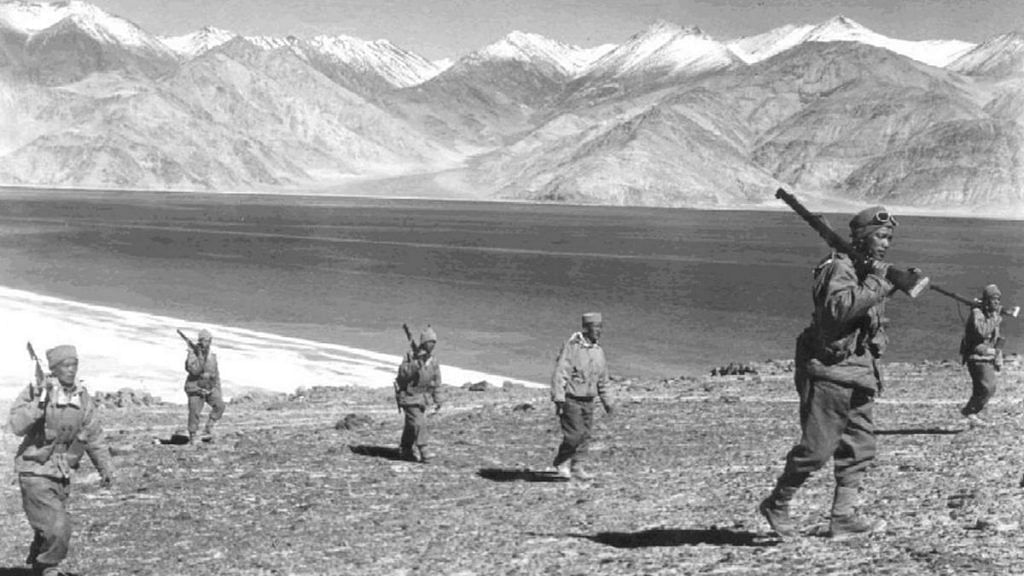The Jana Sangh was critical of China’s annexation of Tibet. The party also tried to draw the government’s attention to Chinese adventurism across the shared Indo-China borders and areas in Ladakh being occupied by China.
The first attack by China came on 8 September 1962. On 20 October there was a massive attack in the North-East Frontier Agency and Ladakh. Finding India unprepared to guard its borders, the Chinese entered and captured significant Indian territory. Deen Dayal Upadhyaya asked the Jana Sangh members to support the Nehru government. ‘Our fight today is not with the Congress, but with the Chinese,’ he said. The RSS workers served the Indian Army personnel on the borders and subsequently the organization was invited to participate in the Republic Day parade of 1963.
Also Read: How Deendayal Upadhyaya’s birthday became a nationally significant date
In 1963, the Jana Sangh suffered another blow when its president Dr Raghu Vira, a known scholar of Sanskrit and Buddhism, died in a car accident. Raghu Vira had been a Congress member of the Upper House of Parliament but had joined the Jana Sangh in 1959 after developing differences with the party over its China policy. Acharya Deva Prasad Ghosh, who had been the party chief from 1956–59, took over as interim president.
All this while, Upadhyaya had been taking up the issue of cow slaughter vociferously. At the Nagpur Central Working Committee meeting of the Jana Sangh in 1966, the party resolved to work towards attaining a ban on the practice in accordance with the Directive Principles of State Policy under Article 48 of the constitution. The party began a concerted movement for cow protection. On 7 November 1966, thousands of gaurakshaks, with sadhus and other religious leaders, marched towards Parliament demanding a law banning cow slaughter across the country. Eight people, including a constable, were killed in these protests.
1967 Elections
Meanwhile, another important development was unfolding as Ram Manohar Lohia, a member of the Samyukta Socialist Party, was drawing closer to the Jana Sangh. Both believed that sustained Congress rule could harm the country. Lohia had made antiCongressism his main plank.
Lohia came to understand the Jana Sangh when the 1963 bypolls came knocking. In the run-up to the elections, the Jana Sangh members campaigned for the Opposition, and this impressed Lohia. He credited the Jana Sangh for his win in the Farrukhabad parliamentary constituency. The constituency had been represented till 1963 by Mool Chand Dube of the Congress. His death early in 1963 caused the by-election. Lohia defeated Congress candidate B.V. Keskar by more than 50,000 votes.
Also Read: In JP’s latest biography, a key question is missing—did he mainstream Jana Sangh?
After his parliamentary victory, Lohia began holding discussions with Upadhyaya on issues where the two parties could work together. On 12 April 1964, they issued a joint statement: ‘Largescale riots in Pakistan have compelled some over two lakh Hindus and other minorities to come over to India. Indians naturally feel incensed by the happenings in East Bengal. To bring the situation under control and to prescribe the right remedy for the situation it is essential that the malady be properly diagnosed. And even in this state of mental agony, the basic values of our national life must never be forgotten.’
When the 1967 elections came close, the Jana Sangh forged alliances with the Swatantra Party in major states like Gujarat, Haryana, Punjab and Himachal Pradesh. In Madhya Pradesh, the party struck an electoral alliance with Rajmata Vijayaraje Scindia, who was earlier in the Congress.
